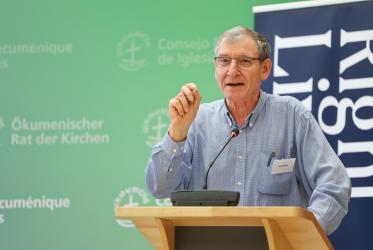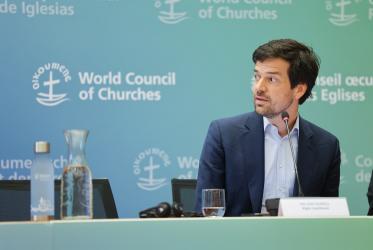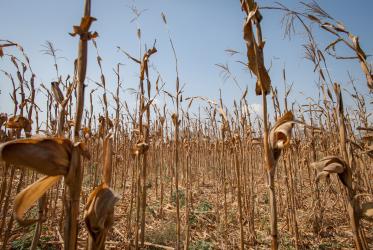Igrejas anglicanas e reformadas membros do Conselho Mundial de Igrejas (CMI) tomaram decisões significativas em defesa da justiça climática.
Um grupo de 17 bispos anglicanos de seis continentes clamaram por orações e ações urgentes diante da "crise climática sem precedentes".
Na Escócia, o Sínodo da Igreja Unida Reformada tomou a decisão de retirar os investimentos em combustíveis fósseis e comprometeram-se em nunca mais investir em tais recursos. A declaração anglicana "O Mundo é Nossa Casa: Um Chamado à Ação por Justiça Climática" estabelece uma nova agenda sobre mudanças climáticas para a comunhão anglicana, formada por mais de 85 milhões de membros.
A declaração compromete os bispos a ações iniciais, incluindo medidas de conservação de energia na construção de templos; mais energia renovável; nutrir a biodiversidade em terras de propriedade de igrejas; apoiar a sustentabilidade da água, agricultura e uso da terra; revisão das práticas de investimentos das igrejas, incluindo o chamado à retirada de investimentos; e mais cooperação ecumênica e inter-religiosa.
O grupo, formado por bispos dos países que mais contribuem com as mudanças climáticas, assim como daqueles que produzem os menores níveis de carbono mas, injustamente, são os mais afetados, encontrou-se na África do Sul, em fevereiro, e depois continuou o trabalho através da internet.
O Arcebispo da Cidade do Cabo e Primaz da África do Sul, Rev. Dr. Thabo Makgoba, que reuniu o grupo, declarou: "aceitamos as provas da ciência de que a ação da humanidade, especialmente em economias baseadas nos combustíveis fosseis, é a causa principal da crise climática. O problema é tanto espiritual quanto econômico, científico e político. Temos sido cúmplices de uma teologia da dominação.
The Archbishop of Cape Town and Primate of Southern Africa, the Rev. Dr Thabo Makgoba, who brought the group together, said, “We accept the evidence of science: Human activity, especially in fossil-fuel-based economies, is the main cause of the climate crisis. The problem is spiritual as well as economic, scientific and political. We have been complicit in a theology of domination. While God committed the care of creation to us, we have been care-less – but not hopeless.”
The bishops commended the Fast for the Climate initiative, joining many others in fasting and praying for the climate on the first of every month.
Women make up majority of the world’s poorest and are hit harder by climate change. The Rev. Ellinah Wamukoya, bishop of Swaziland and Africa’s first woman bishop, said that “Women are more often dependent on natural resources for their livelihoods, so the contribution of women is essential in decisions around climate change. Our communities must be equal, as in the Eucharist.”
The Bishop of Salisbury, the Rev. Nicholas Holtam, has welcomed the call to tackle what the bishops call an “unprecedented climate crisis.” A member of the delegation, he noted that issuing the declaration during Holy Week and addressing the churches on Good Friday “is a mark of the seriousness with which we view the crisis of climate change.”
The resolution on divestment was passed at the Synod Meeting, which took place 20 to 22 March, at the Scottish Police College, in Tulliallan, Fife. The URC Synod of Scotland will now examine its financial arrangements and ensure that its investments do not endanger creation.
Rev. John Humphreys, moderator of the URC’s Synod of Scotland, said that the Synod has shown a clear commitment to ethical investment through “an affirmative action against climate change.”
Humphreys also spoke about the role of churches in the debate on climate change. “We hope and pray that other churches will feel able to respond ethically to the growing threat of catastrophic climate change,” he said.
The World Is Our Host: A Call to Urgent Action for Climate Justice






